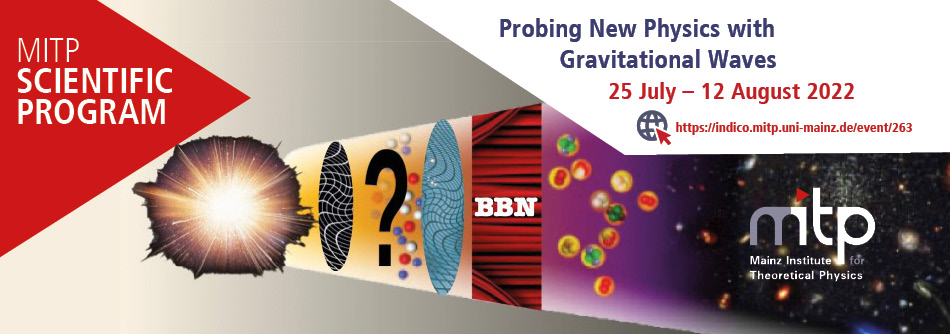The detection of gravitational waves gave us a new way to investigate our universe. All signals so far have been of astrophysical origin, and they revealed the existence of unexpected binary systems with remarkably massive black holes. Apart from astrophysical sources, in the future, we will be able to detect also gravitational waves produced in the early universe. Moreover, general relativity and modified theories of gravity can also be tested by their impact on the GW spectrum generated by astrophysical and cosmological sources. Thus, GW astronomy is a unique tool to probe fundamental physics and eventually discover new theories of Nature, with an expected bright future ahead due to the several new GW observatories that will be built in the next decades.
This workshop will gather leading experts in the field of particle physics and cosmology, interested in discussing the new opportunities offered by gravitational waves as probes of new physics. Furthermore, it will be encouraged the participation of experts from the gravitational wave astrophysics community to discuss in-depth astrophysical backgrounds and precise signal predictions. The outcome of this program will be the identification of the most promising new physics scenarios which will be testable and it will help the community in setting the stage for the future development of our field.

